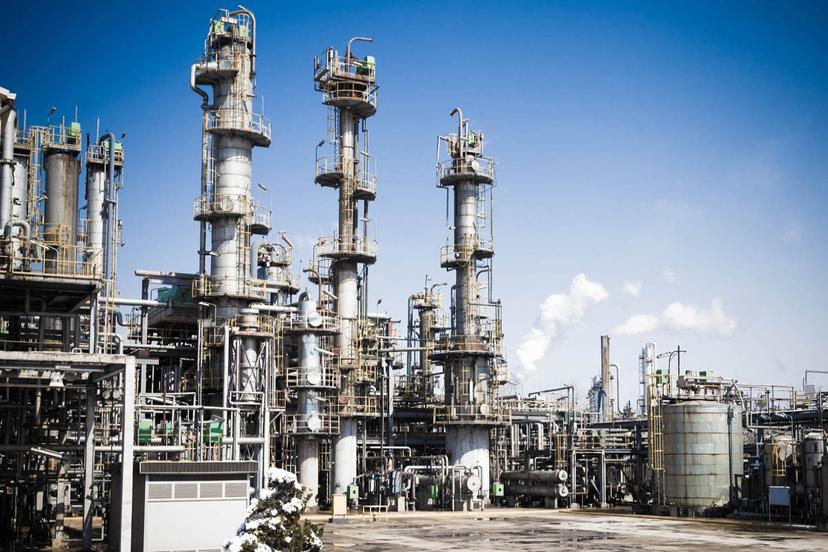Chemicals

Industry Outlook
The chemicals industry remained in growth mode during the second half of 2019, according to an American Chemistry Council (ACC) forecast. While exports had been negatively impacted by trade disputes and slower economic growth in other parts of the world, creating a trade surplus, the industry was benefiting from domestic growth. The energy industry, specifically, was a bright spot for American chemistry companies as capital investment connected to natural gas and natural gas liquids production increased. Following decades of decline, expanding capacity in the petrochemical market was reflected in 330 new projects that had been announced by mid-2019. Collectively worth $204 billion, the ACC explained that 40 percent of these projects were still in the planning stage, while 53 percent were underway or completed. Capital spending was expected to rise 5.4 percent in 2019, 4.9 percent in 2020, and total $43 billion by 2024. The ACC's outlook varied by industry sector. The most significant output gains were occurring in the inorganic, organic, and other specialty chemicals categories.
The outlook for different chemical manufacturing jobs was variable. Through 2028, the Department of Labor expects employment of chemists and materials scientists to increase 4 percent, or as fast as the average. Chemical technicians will experience 2 percent employment growth, which is slower than average. Chemicals plant and system operators and chemical equipment operators and tenders will each experience a decline of 2 percent.
Although declines in certain manufacturing industries will have a negative impact on employment, many job opportunities will still exist. Chemists will benefit from a need to develop nanotechnology-based treatments in the medical field and help manufacturers improve their use of green chemistry and reduce pollution. Chemical technicians will be needed to help chemists and chemical engineers test new materials. Chemical engineers will be needed to develop plastic resins that improve automobiles' fuel efficiency and meet demand for natural gas production.
As in many other industries, the number of people that will be retiring over the next decade is expected to increase, which may also lead to the need for more workers in this industry. The impact of this may be less, however, than in other industries, due to the overall slow growth of the industry as a whole.
Much of the chemicals industry’s production relies on on-site jobs and products manufactured in China. As a result, the 2020 coronavirus pandemic, which led to business closures and social restrictions, made it difficult for many companies to continue business as usual. A decline in demand for products that corresponded to an economic slowdown, decreased consumer activity, and shortages of related products also hurt the industry. The interruption of global supply chains inhibited timely shipping even of available or in-demand products, creating further trouble for the industry.
Moving forward, the outlook for the chemical industry is growing more positive, according to a December 2020 report by the American Chemistry Council. Chemical production is expected to grow by nearly 4 percent in 2021 and nearly 3 percent in 2022. As described in the report, "American chemistry is playing a vital role in the global fight against COVID-19, providing inputs for personal protective equipment, disinfection and sanitation products, medical supplies and equipment, protective barriers, and plastic packaging, among others." Many areas of the chemicals industry that saw declines in 2020 are projected to rebound in 2021 and the near future. Growth in chemicals will be broad based after the pandemic ends. The U.S. chemicals trade is expected to recover to $240 billion in 2021, compared to $220.8 billion in 2020. The rate of post-pandemic growth for the chemicals trade industry is linked to the rate of manufacturing recovery, trade policy, and the time required to contain the pandemic.
Fast Growing Sectors
One area of strong growth is expected to be forensic chemistry, especially DNA analysis. According to the American Chemical Society (ACS), experts predict that more than 10,000 new forensic scientists will be needed over the next decade to work in private laboratories and government agencies. There is also a need for chemists to do crime-scene investigation and analysis of evidence. Opportunities are also expected to be excellent for forensic science technicians, with 14 percent employment growth through 2028, as forecast by the Department of Labor.
Another growing sector is biotechnology. Biotechnology is creating many partnerships between sectors and can be used to help clean up the environment as well as in the agricultural and pharmaceutical sectors. Chemists are needed to continue the research and development of new products in these fields.
Companies that provide environmental services and earth-friendly products should do well. Environmental concerns will also continue to compel the chemical industry to devote resources to comply with governmental regulations. Therefore, occupations related to compliance, improvement of product visibility, and promotion of consumer confidence should grow. International competitiveness will also be important.
Consumer product companies are also experiencing steady employment needs. As consumers continually seek new or improved products or those that are more environmentally friendly, companies are hiring chemists and chemical engineers to develop and test ingredients that could meet consumer demands.
Other Trends
Other trends include a continued emphasis on research and development. In order to stay competitive and differentiate their products, companies will continue to produce specialty chemicals, such as advanced polymers and plastics, which are designed for specific uses. This should increase employment of chemists in research-oriented positions.
A focus on new manufacturing processes will also continue and should represent opportunities for chemical engineers. The market shift to specialty chemicals and increasing competition will create more marketing and sales positions as companies strive for product visibility and an increasing market niche. In general, opportunities in the chemical industry continue to be best for those with advanced degrees.
